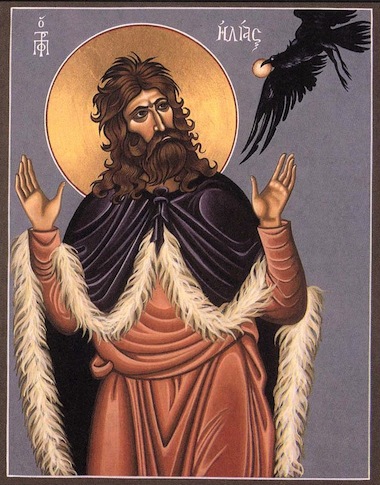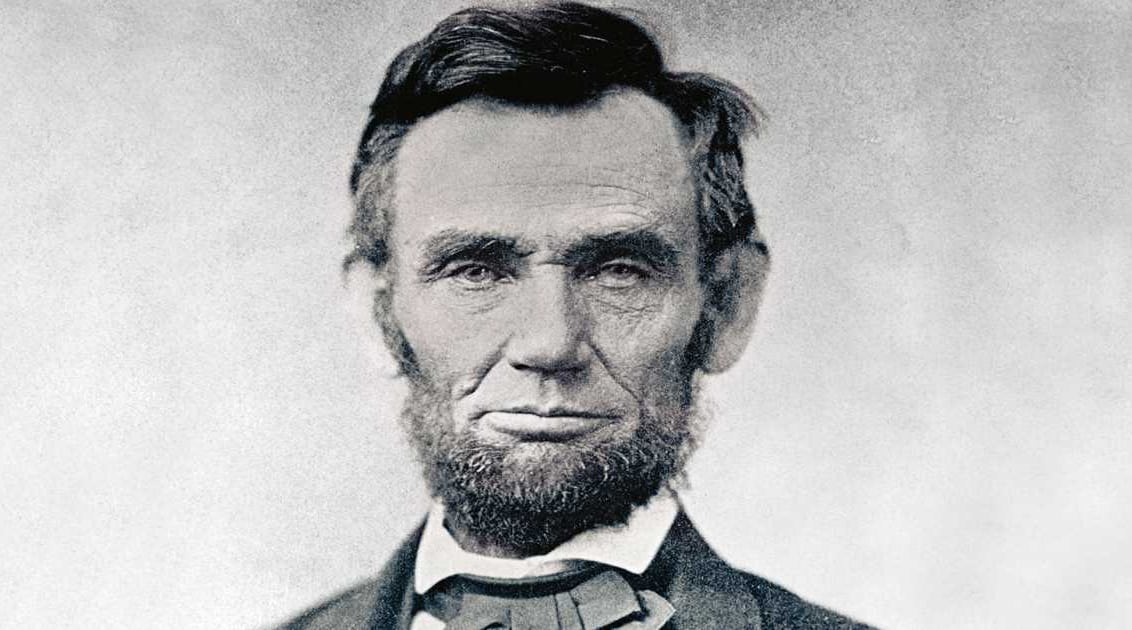Elijah, the prophet, was thoroughly discouraged. He had just had his most famous moment under the sun. In a head-to-head confrontation with the prophets of a false god, he had utterly discredited them and won a resounding victory. The idolatry of the Israelites would cease and Elijah thought his troubles were over. Never again would the Jews worship false gods – or so he thought.
He soon found out how wrong he was. Israel’s corrupt queen (her name was Jezebel) was infuriated and vowed revenge. She wanted to kill Elijah and a lot of people were going along with her. It was a hard blow for Elijah to absorb and we find him in today’s first reading sitting under a little tree out in the blazing desert feeling as if he were useless, that he life was a wasted effort, and that he might as well die.
How many of us feel as if our lives don’t amount to much at all, that we are unloved, unappreciated, that no one cares about us, and that our lives are meaningless and purposeless? We are not great prophets or great celebrities. But in our own ways we try to do good, try to be faithful to God, only to discover that few people care, or if they do they mock us for being “goodie, goodie” people who think we’re holier than others. No matter how hard we try to do good and struggle to walk in God’s ways, those around us who do not walk in His ways seem to live happier and better lives than we do. The Jezebel’s of this world are celebrated — we are not.
Elijah was not a weakling looking for a way to escape from God and God’s ways. He was in fact one of the most renowned and great figures in Israel’s entire history. He was one of God’s greatest prophets. When Jesus was at the height of his career many thought he was Elijah returned to earth. And it was Moses and Elijah appeared with Jesus when he was on top of the Mount of Transfiguration.
But as great as Elijah was, he was not immune from sickening depression. Following after him another prophet was given to Israel, Jeremiah. He stood up against corruption in high places as few ever have. He cried out for justice as few others have done. But the day came when he, too, was ready to throw in the towel.
Great men and women, great prophets of God, and saints too, experience depression and discouragement. The higher they are, the deeper the valleys of depression, discouragement and defeat. Abraham Lincoln, for instance, suffered from severe bouts with depression.
Even Jesus himself experienced a form of depression. At one point in his public ministry Jesus cried out “0 faithless and perverse generation, how long must I be with you? How long must Iput up with you?” And at the end of His life, just after His triumphal Palm Sunday entry into Jerusalem, we find Jesus on the Mount of Olives weeping over Jerusalem’s rejection of Him. Shortly thereafter, while dying in his cross, Jesus cries out “My God, my God, why have you forsaken me?”
Perhaps it is just such moments that we come to truly realize how much we need God’s love, His presence, his power and his life-giving Spirit. Isn’t it true that in good times, when everything is going along wonderfully for us, we hardly pay any attention to God? We even neglect to thank Him for all that He’s done for us. Isn’t it true that we only get serious about turning to God when terrible things happen to us, or when we’re really discouraged and depressed? I’m afraid it is true. It’s happened in my life, and I’m sure it’s happened in yours, too.
To return to the story of Elijah, we find him out there in the desert, exhausted, depressed and falling into a deep sleep. It was then that an angel touched him, woke him up, and gave him fresh bread and refreshing water. I wonder how that angel looked?
You have, I’m sure, been touched by an angel… someone who came to you when you were beaten down, depressed and discouraged, one who gave you refreshing words, encouragement, and some new hope. Sometimes you find them there for you after a family funeral, or when you’ve received bad news from your doctor, your teacher, or someone has rejected you. In those terrible moments, look for an angel – someone who will give you a message or a sign from God. They will come to you. They well be there with you.
Elijah went on to accomplish wonderful things for God. God had greater things for him to do. And He has such plans for each one of you … and for me. Endings are never just endings. They are always beginnings. Every Good Friday is followed by an Easter Sunday. Every night is darkest and coldest just before the dawn.
Those words are not just nice sayings – pretty poetry and nothing more. Those words are true words, wise words. For God is never defeated. God is always bringing meaning out of absurdity, order out of chaos, victory out of defeat, good out of evil and life out of death. The history of the bible is a history of how God is always starting over again with us.
That is the meaning of the Bread of Life. That is the content of the Bread of Life. For Jesus comes to us in wheat that has been ground up and grapes that have been crushed. Jesus comes to us in a Holy Communion that He gave us in His own agony, suffering and death. For the Bread of Life is Jesus coming to us in His Spirit-filled, glorious resurrection. He rose from the dead to begin a new, a higher and a more power-full life … God’s very own life, a life that He didn’t keep for Himself but gives us each and every time we receive Him in His Holy Communion.
Never give up, never give up, never give up. The greatest among us have had their own valleys of death and depression to traverse in order to climb out and up to their mountain top experiences. Can we expect better or easier lives than theirs? Can we expect better and easier lives than Jesus’ life?








